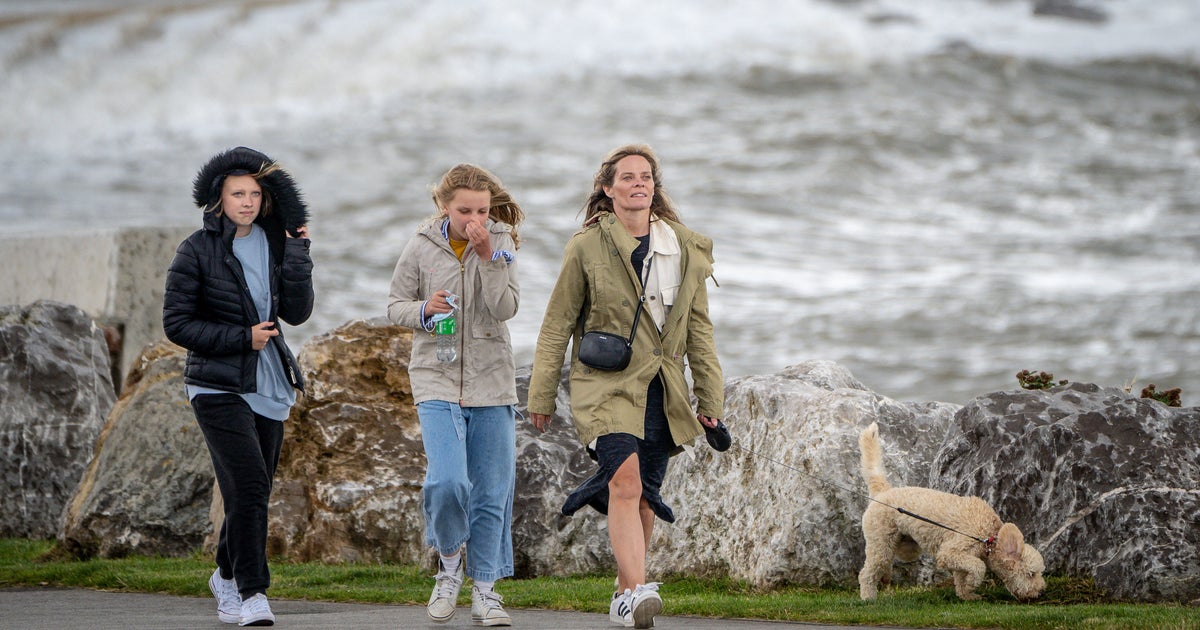Wales Introduces Dog-Free Zones to Promote Outdoor Inclusivity
Wales Implements Dog-Free Zones for a More Inclusive Outdoors
When we think of enjoying the great outdoors, a picture of families, children, and, of course, dogs running wild often comes to mind. However, recent discussions in Wales have sparked an important conversation about inclusivity and accessibility in outdoor spaces. With the introduction of dog-free zones, Wales aims to create environments that everyone can appreciate—whether you’re a dog lover or not. Let’s dig into what this means for residents and visitors, and how it could change outdoor experiences in Wales.
Why Introduce Dog-Free Zones?
Making Outdoor Spaces Accessible to Everyone
Dogs are often referred to as “man’s best friend,” and for good reason. They bring joy and companionship, making outdoor activities more fun for many. But let’s not kid ourselves; not everyone shares that sentiment. Some individuals may feel anxious around dogs, while others may have allergies or dislike being around barking pups. By establishing dog-free zones, Wales is acknowledging these concerns and striving to ensure that everyone can enjoy nature without the stress that can come from encountering dogs.
An Approach Toward Inclusivity
Inclusivity is the name of the game here. Imagine walking through a beautiful park, relishing the sights and sounds of nature, when suddenly a dog charges toward you, barking excitedly. For many, this can be a major buzzkill. Dog-free zones will foster environments where everyone—from families with young children, to the elderly, to those with disabilities—can feel safe and comfortable. It’s about creating a balance, where both dog lovers and those who prefer to keep their distance can enjoy outdoor spaces in harmony.
Where Will These Zones Be Located?
Wales plans to implement these dog-free zones in a variety of outdoor spaces, including:
- Parks: Family-friendly environments where children run and play are ideal candidates for these zones.
- Beaches: Popular summer spots often see a delicate balance between enjoying the sun and managing eager canines who just want to dive into the waves.
- Nature Reserves: These areas are often frequented by those seeking solitude and a deep connection with nature, making them perfect for dog-free zones.
A Trial Run
The introduction of dog-free areas in Wales is currently undergoing a trial phase. Local councils are evaluating the effectiveness of these zones, keeping feedback from residents and visitors at the forefront. It’s an experiment that could set a precedent, with potential implications for other regions.
Who Benefits from Dog-Free Zones?
Families with Young Children
Parents can enjoy peace of mind when letting their kids run wild. No more worrying about a dog bounding over to play or, heaven forbid, causing a little one to trip or fall. Dog-free zones ensure that children can explore, play, and learn in a safe environment without unintended canine interruptions.
Individuals with Allergies
For those who suffer from pet allergies, outdoor activities can sometimes feel like a mixed bag. You might want to enjoy a picnic or a jog, but a sneezing fit isn’t exactly the ideal way to spend a sunny afternoon. By designating dog-free areas, Wales is ensuring that those with allergies can thrive outdoors—just another reason to break a sweat in the fresh air!
The Elderly and Vulnerable
Our older generations, who might have less mobility and need a bit more peace and quiet, can also find solace in dog-free zones. No unexpected canine encounters means they can connect with nature without the worry of being knocked over by an overly enthusiastic pup.
The Environmental Aspect
Dog waste is an unfortunate reality in many parks and outdoor spaces. When dogs are off-leash, it can lead to neglected cleanup and unsightly messes that detract from the natural beauty of an area. By designating specific zones, Wales not only promotes inclusivity but also encourages cleaner parks and reserves. A win-win, don’t you think?
Balancing the Love for Dogs
Wales’ initiative doesn’t mean that dogs are demonized or banished from all outdoor spaces. Rather, it’s about creating designated areas for dogs and their owners, while still providing spaces for people who may not wish to share with our furry friends.
Designated Dog Parks
To keep the dog-loving community happy, Wales plans to implement designated dog parks where pet owners can let their pooches roam free. These parks will provide a safe environment for dogs to socialize, ensuring that everyone gets their dose of outdoor enjoyment without stepping on anyone’s toes.
The Role of Community Engagement
Engaging with local communities is vital for the success of this initiative. Councils are looking for input from residents about how and where to create these dog-free zones. Public meetings, surveys, and community forums will play an essential role in shaping the future of outdoor spaces in Wales.
Making Your Voice Heard
As a citizen or visitor, your opinion matters. Councils are encouraged by active participation in discussions about the locations and regulations of dog-free zones. Do you have a favorite park that you think should be dog-free? Or a location that would benefit from a designated dog area? Speaking up gives residents a unique opportunity to contribute to this transformative movement.
Conclusion
Wales’ introduction of dog-free zones marks a significant step toward promoting outdoor inclusivity. By considering the needs of all community members—regardless of their feelings about furry companions—Wales is taking a proactive approach to creating enjoyable and accessible outdoor spaces. These zones are more than just lines on a map; they represent a balanced coexistence between canine lovers and those who prefer to enjoy nature in a dog-free setting.
In the end, we all want to relish the invigoration of fresh air and the beauty of nature. Who says we can’t create spaces that cater to everyone? Here’s to a future where we can enjoy the outdoors together, whether with a wagging tail or without one!
FAQs
Q1: Will dogs be banned from all parks in Wales?
No, the dog-free zones will be specific areas within parks, beaches, and nature reserves. Dogs will still be allowed in designated areas.
Q2: How will the success of dog-free zones be evaluated?
Local councils will gather feedback through surveys and public meetings to assess the effectiveness and community satisfaction with these zones.
Q3: Can dog owners still socialize their pets in other outdoor spaces?
Yes, dog owners will be encouraged to use designated dog parks to allow their pets to socialize and play freely.
Q4: What support is available for individuals who feel anxious around dogs?
Councils are working on initiatives to provide safe spaces and resources for individuals who might struggle with anxiety around dogs, encouraging community discussions.
Q5: How can residents get involved in the discussion about dog-free zones?
Residents can participate in local forums, surveys, and meetings organized by councils to voice their opinions on the establishment of dog-free zones.







